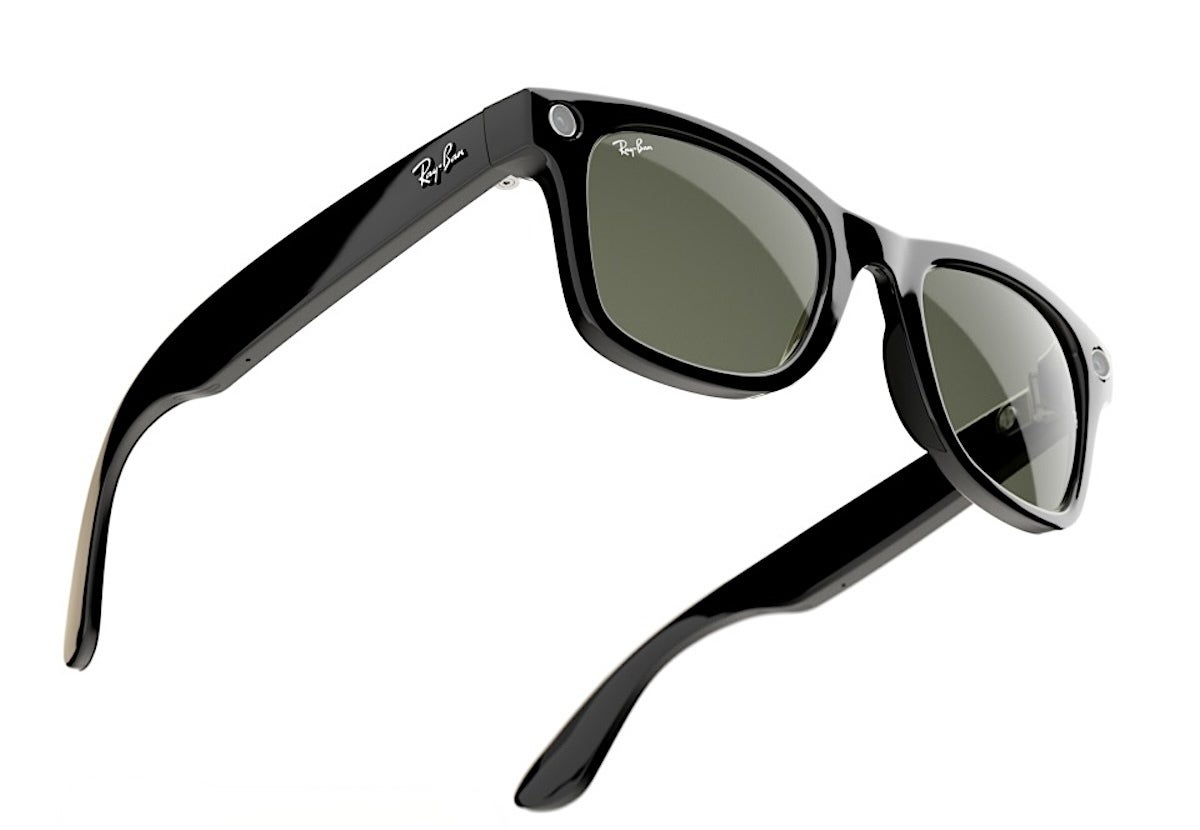Apple’s pricey Vision Pro augmented reality platform is expected to arrive in the first quarter of 2024. But by the end of the year, I predict the platform of the year will be — drum roll, please — AI glasses!
Wait, what?
That’s right. Glasses that let you interact with artificial intelligence (AI) from the comfort of your own face will be the sleeper hit of the year. In fact, the buzz around market leader Meta has already begun.
Announced in September and shipped in October, the Ray-Ban Meta glasses arrival was initially received with a collective shrug. They were assumed to be camera glasses, like Snap Spectacles, or virtual assistant glasses, like Amazon’s Echo Frames. Or, for that matter, a small upgrade from their Meta predecessor, Ray-Ban Stories. But Spectacles, Echo Frames and Ray-Ban Stories failed to thrill the gadget-loving public.
It took a while for everyone to learn that Ray-Ban Meta glasses, which start at $299, are orders of magnitude better and more powerful than any of these lackluster gadgets; they offer a much better camera, super high-quality audio, the ability to live-stream to social, and an incredibly good AI assistant.
(Here’s a look at the camera quality via my own photos and a video.)
Despite the lackluster launch, Ray-Ban Meta glasses started blowing up online in December when three things happened.
First, Meta announced a kind of closed beta of its “multimodal” feature. While users could conjure up the Meta Assistant at any time using the “Hey, Meta” command, the “multimodal” feature adds a “look” command that sends a picture taken through the glasses’ camera to the Meta Assistant for processing and analysis. You can tell your glasses to look at a table full of ingredients and condiments and give you a recipe for using those items, for example — all hands-free. The combination of both spoken and visual interaction with Meta’s powerful AI is mind-blowing and conspicuously world-changing.
Second, tech journalists started forming a consensus that Ray-Ban Meta glasses are actually transformative. Though I was praising them way back in October, a critical mass of my colleagues really started getting excited about them only last month.
Mashable’s Kimberly Gedeon said: “The Ray-Ban Meta Smart Glasses shocked me, in a good way.”
9to5Mac’s Filipe Espósito wrote, “Ray-Ban Meta glasses convinced me to believe in smart glasses.”
C|NET’s Scott Stein said (about the ”multi-modal” feature) that “the demo wowed me because I had never seen anything like it.”
Third, Ray-Ban Meta videos started taking off on TikTok and other social networks (even though the glasses’ live-streaming feature supported only Facebook and Instagram).
Yes, it’s already a market
Several AI glasses products are already on the market. For example, Lucyd Lyte Smart Eyewear Powered with ChatGPT was announced in August. The glasses are inexpensive, but of fatally low quality — especially the sound quality — according to…
2024-01-06 21:00:03
Link from www.computerworld.com rnrn
